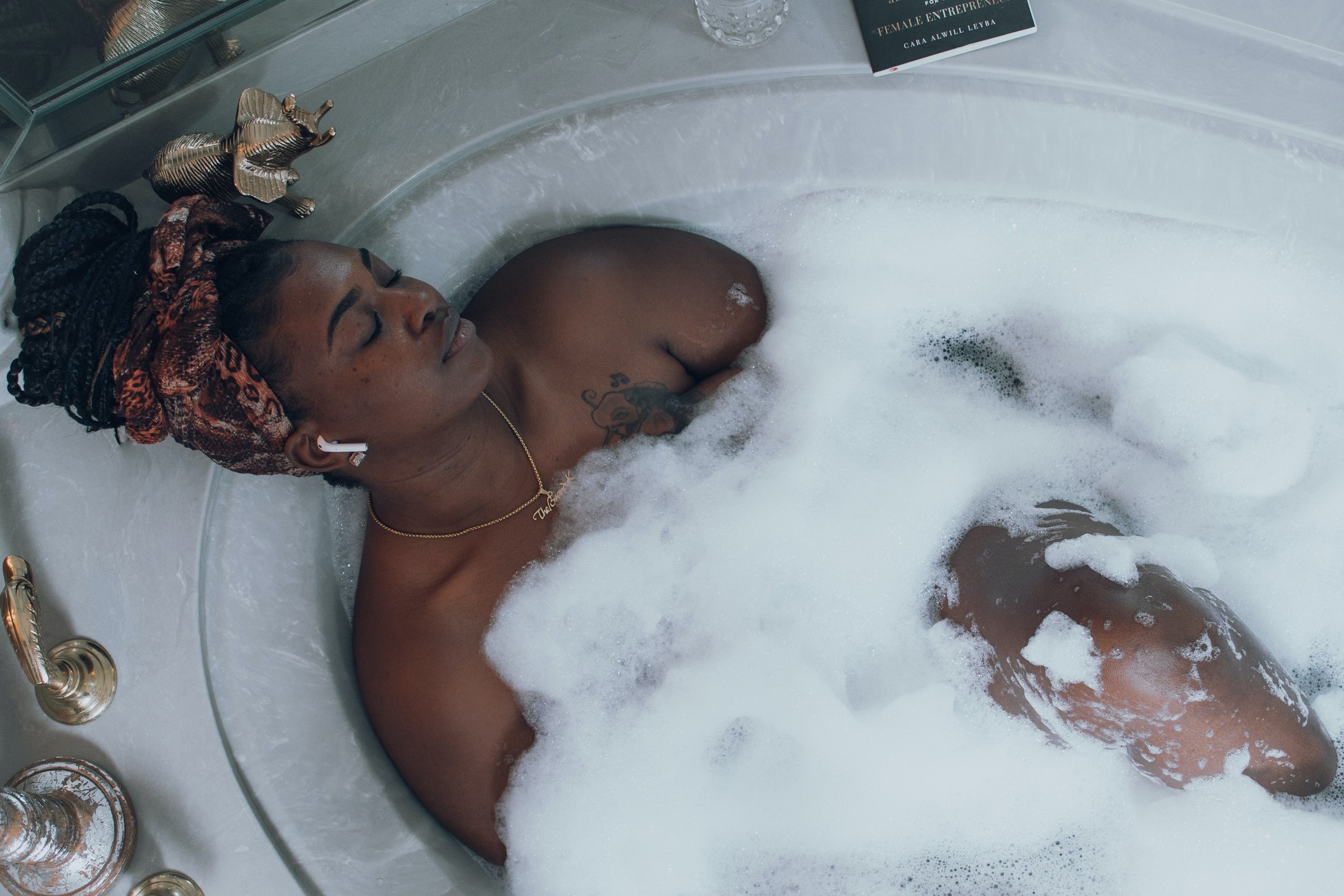The Importance of Self-Care
While the topic of self-care seems to be popping up more often lately, it is still largely underrated and perhaps a bit misunderstood. I'd like to start off with defining the terms we work with: while self-care might seem like a very simple definition (caring for yourself), let's flesh that out further. Self-care is about tending to our wellbeing needs; taking care of our bodies and our minds. It includes our physical, mental, emotional, social, and spiritual wellbeing.
It's also important to note what self-care isn't. Primarily, self-care is not selfish. In fact, it's the opposite. It is necessary for us to have good self-care in order to be there for others. It's just like the saying about putting on your own oxygen mask on an airplane before helping others. Here's another analogy: stopping for gas is necessary for us to get to where we need to go. If we don't make time for it, prioritizing it even if we're running late, then we're going to end up stuck on the side of the road, wasting more time and not able to get to the folks who need us; in the long run, we become the ones who need help. When we don't prioritize self-care, everything breaks down. "When you don't make time for your wellness, you'll be forced to make time for your illness" (original quote source unknown).
Let's take a dive into some healthy self-care practices.
Physical Physical self-care encompasses a lot of different concepts. We need to take care of our bodies so they function well in the long-term, feel good in the short-term, and also treat them when they're unwell. Aspects of physical self-care include hygiene, sleep, nutrition, exercise, doctor visits (preventative wellness care in addition to visits for sickness and injury), engaging in movement we enjoy, and avoiding harmful behaviors. Some examples may include: going for a walk, getting a haircut, cooking and eating a nutritious and delicious meal, skateboarding, massage, playing with a pet, wearing clothes that fit you well and look great, basketball, saying "no" to plans in order to rest when needed, picking out a new perfume or cologne, getting a dental cleaning, yoga, tennis, taking a day off of work when sick, playing softball, manicures and pedicures, mindfully choosing what to eat, getting an annual physical, golf, or taking a bath or long, warm shower. What else would you personally add to that list?
Mental/Emotional Caring for our mental and emotional needs are just as important as caring for our bodies. Remember: mental health is health. There are so many ways to do this, and because we're so diverse and unique, what feels good for one person might feel stressful to another individual. Here are some possible suggestions: listening to music, puzzles, watching or playing sports, talking to a friend on the phone, painting, taking a drive, writing poetry, watching stand-up comedy, cleaning up and organizing, reading, playing video games, coloring, shopping, gardening, meditating, arts and crafts, talking to a therapist, baking, learning something new, journaling, swimming, listening to a podcast, or watching movies. What other activities do you consider mental or emotional self-care?
Social Our social wellness is multifaceted; it incorporates various important relationships in our lives as well as balancing our time alone. It's good to be aware of the differences between being an introvert and extrovert. In case you're not aware of the difference, those terms have less to do with being outgoing or "the life of the party" and more to do with our energy; extroverts "charge their batteries" by spending time with others, while introverts recharge alone. So in spite of the stereotypes, introverts can be talkative, friendly, and even gregarious while extroverts can be quiet, socially awkward, and have a relatively small circle--it's about how a person feels after spending time with others. Here are some socially-focused self-care ideas: dining out in a restaurant (alone, with 1 person, or a whole group), going to a street fair or festival, attending a party, video-chatting, hosting a game night, spending 1-on-1 time with family, joining a league, spending time alone, checking in on a friend or relative, going to a concert, random acts of kindness, dating, or any kind of quality time with someone close to you. What additional pursuits can you add to this list of social self-care?
Spiritual Spiritual self-care may or may not be related to religion or beliefs, but it's important for us all to explore our spiritual wellbeing. Here are some ideas to try: meditation, taking a walk in nature, yoga, using grounding techniques, reading spiritual or philosophical texts, volunteering, exploring new ideas, reiki, practicing activism, prayer, engaging in meaningful ideological discussions, reflecting, or helping others. How else can you engage yourself spiritually?
There are so many more things that can be thought of as self-care; the possibilities are nearly limitless as long as you're making a deposit in your metaphorical personal account. That brings us to one more facet of the self-care conversation that I think is noteworthy: indulgence, instant-gratification, and excess. These things are not necessarily markers of poor self care, but we must all be self-aware and self-reflect on our wellness choices. We want to be aware of sacrifices to our long-term wellbeing for immediate pleasure and view them from both short and long-term lenses. Consider the ideas below:
"So wait a minute, is having a glass of wine while I relax on the couch after a long day good self-care, or not?" Great question! It can be either. The answer to most questions much of the time is balance. There's a big difference between 1-2 small glasses vs finishing a bottle or more. If drinking feels like something you have a hard time controlling, or your drinking is presenting harm to you (if it's exacerbating another health condition, causing you to drink and drive, leading you to forget things, or putting yourself at risk in other ways) you might want to seek some professional help or participate in a self-help group, such as Alcoholics Anonymous. In those cases, it would be poor self-care, but otherwise an occasional drink can be an acceptable part of self-care.
The same goes for sugar. If partaking in a treat feels like a good way to unwind, then it very may well be. The exceptions to this might be if you have certain eating disorders, health conditions, or a tendency to over-do it (by whatever definition that means to you) and then feel sick or badly about it afterward. Talk to your doctor or a nutritionist about where certain foods fit into a healthy eating plan for you and your body's unique needs. Perhaps if this question makes you feel uneasy, you might want to seek the help of a therapist.
The bottom line is that our acts of self-care should fit into the web of our health and wellbeing. The best self-care strategies are ones where the benefits clearly outweigh the drawbacks or risks. And remember, self care is critical to all of your endeavors because you cannot pour from an empty cup.


